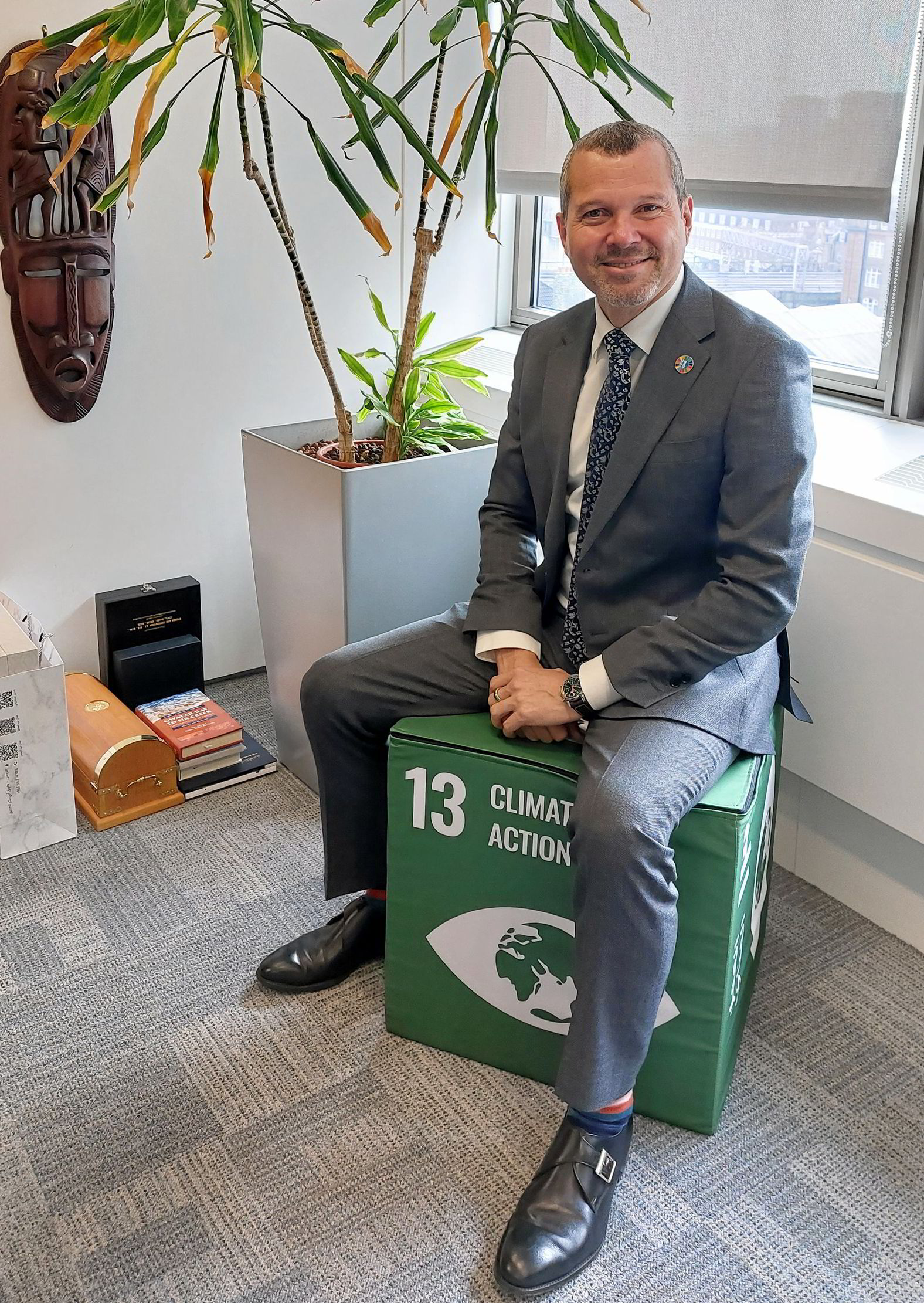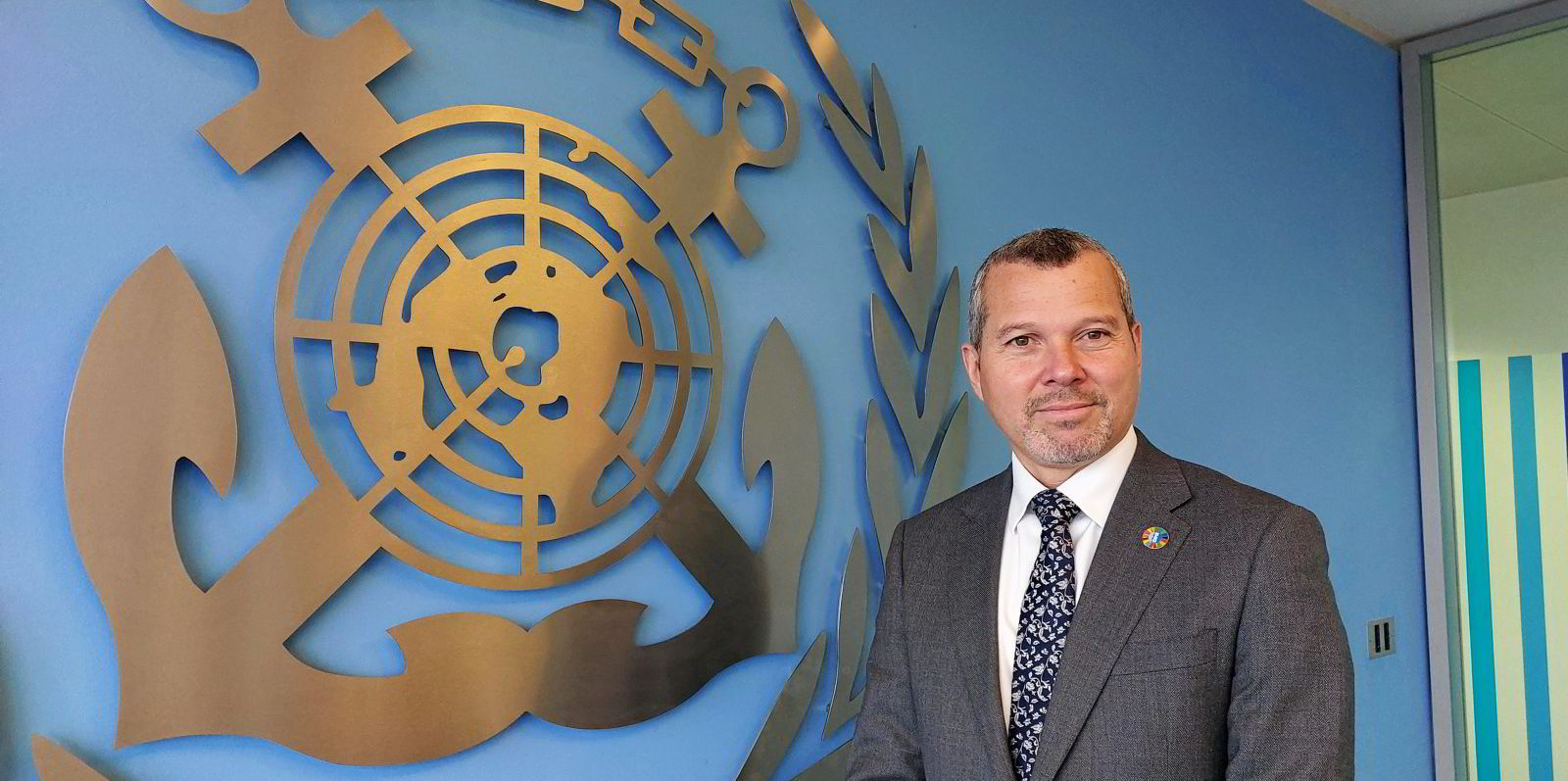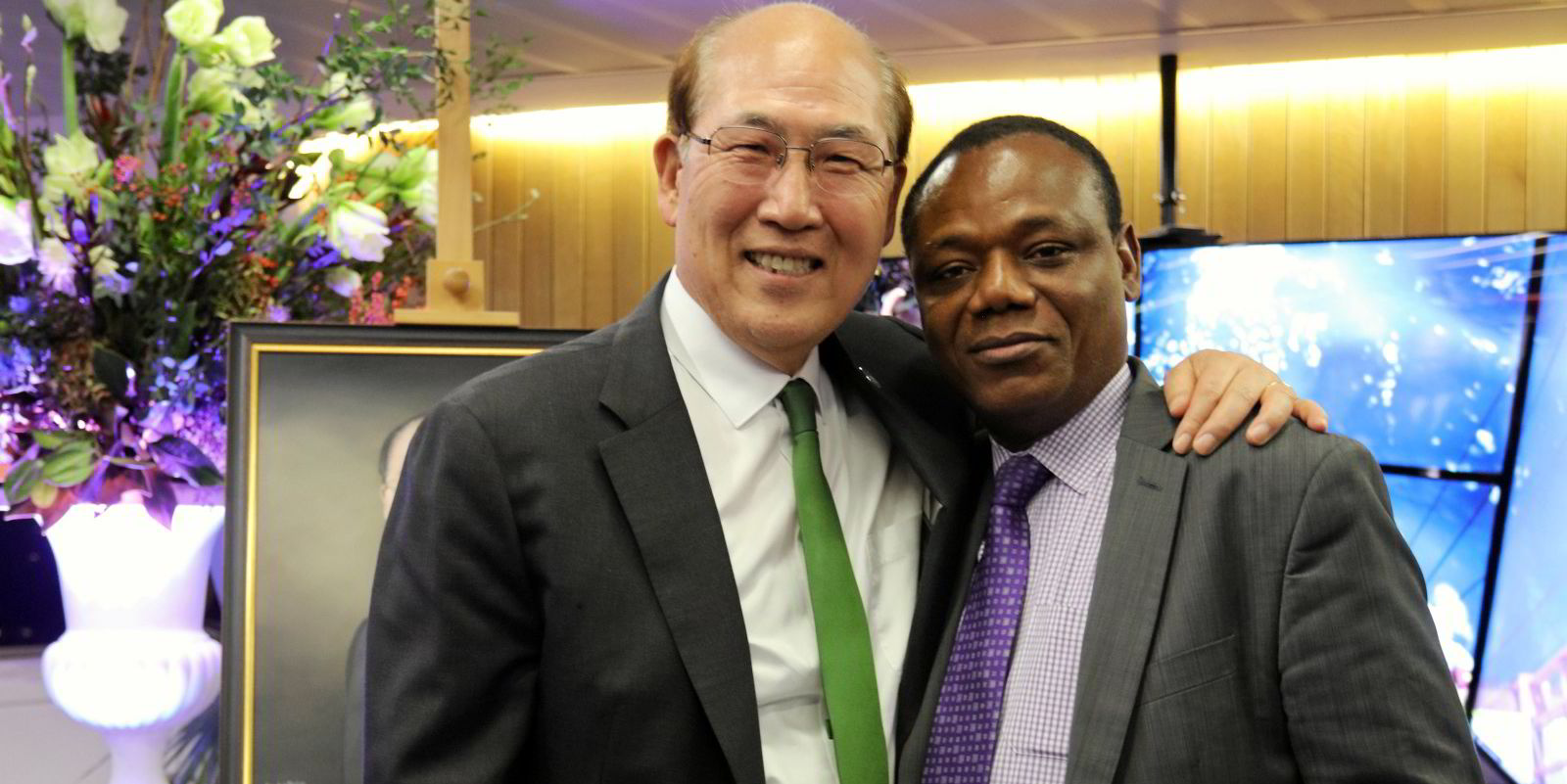The new head of shipping’s global regulator has pledged to lead a more diverse, outward-looking and transparent organisation as he confronts the biggest upheaval in the industry for generations.
Arsenio Dominguez, 53, promised to tackle rifts within the International Maritime Organization and promote an agenda for change to cut red tape and encourage women and younger people at the notoriously fusty United Nations body.
In an interview with TradeWinds, the Panamanian IMO veteran railed against the characterisation of the IMO as a “cosy” club but said he would take the organisation out of its industry-focused bubble to challenge governments over the criminalisation of seafarers and to fight for shipping’s share of new fuels.
His initial four-year tenure comes at a crucial time for the industry. Shipping has been thrown into turmoil by the war waged by Russia and attacks in the Red Sea while at the same time preparing to become a net zero industry within three decades.
One of Dominguez’s first challenges will be to smooth the differences between the 175 member states to bring in a global carbon levy to pay for the transition to a greener fleet. A pricing mechanism is due to enter force in 2027 and is considered crucial to encouraging shipowners to take bold first steps in the multitrillion-dollar project.
He said he was taking over an organisation that had gone from one that had been considered a “bit too slow” on addressing the challenges of climate change to becoming a “pioneer”, as it aims to lead the industry to net zero emissions by 2050.
‘Bring it on’
“It’s exciting. It’s a good time,” Dominguez said at the IMO’s London headquarters. “It’s thrilling to have the opportunity to take the organisation to the next level … that’s more in line with the present and more prepared for the future.
“So bring it on.”
If Dominguez serves two full four-year terms allowed under IMO rules, it will take him beyond the IMO’s first major target date for decarbonisation in 2030, when emissions should be cut by at least 20% based on 2008 figures with zero-emission fuels making up at least 5% of the mix.
He urged shipowners to be bold and take the first steps to greening their fleets, even before an agreement was reached at the IMO. “You don’t have to wait always for the regulation to be in place to be proactive and take action,” he said.

He anticipates the transition will change shipping routes and networks. “If we don’t adapt, if we don’t change, we’re not progressive, we can be left behind. But that’s not where we are right now.”
Dominguez secured the top job in July after an election comprising six candidates, half of them women. The charismatic Dominguez was seen as a unifying and capable candidate able to navigate the workings of the UN body, backed by more than 25 years of experience there.
The trained naval architect’s jobs within the organisation have included being the representative of the Panamanian delegation, chief-of-staff to his predecessor, Kitack Lim, and director of the marine environment division.
‘Cosy’ club
But his election led to complaints — led by Finland, which nominated one of the defeated women candidates — that the IMO was a “cosy” conservative organisation that was unwilling to embrace change.
Dominguez accepts that the IMO needed to be “more diverse, that brings down bureaucratic barriers, an organisation that looks to the future and engages more with the younger generation”.
He said he would refuse to join any “manels” — male-only discussion panels — but said the characterisation of the organisation as a cosy club was unfair, “taking into account all the progress that has been made and how much we continue to move forward”.
“I think we need to work on the image of the organisation a little bit more. Transparency is a key priority for me,” he said. “What I want is when everybody talks about shipping, the first thing that comes to mind is the IMO.”
The ultimate IMO insider said the priorities would be to drive through the organisation’s green agenda and to promote other key areas, such as rules over the automation of shipping and seafarer safety. His first year coincides with the 50th anniversary of the International Convention for the Safety of Life at Sea, known as Solas.
The IMO relies on unanimity for taking key decisions but rifts within the organisation led to Russia being ousted from the IMO Council, its executive body, for the first time in more than 60 years following the invasion of Ukraine.
The IMO’s assembly, the main decision-making body also, in December, called for a crackdown on sanctions evasion, illicit ship-to-ship transfers and other so-called shadow fleet activity driven by concerns over the fleet carrying Russian oil.
Russia has complained about the politicisation of the IMO. Dominguez said one of his first tasks on taking over in January was to “maintain the harmony” to keep agendas moving forward.
When things get tough, Arsenio Dominguez heads to the court.
The Panamanian says that salsa dancing is in his blood, skiing and golf are hobbies — but tennis is his passion.
“That’s my stress release mechanism,” the new International Maritime Organization secretary general said. “That’s the one I can’t live without.
“I know that I'm going to find it more difficult to play tennis right now — but it's been my passion since my teenage years. For as long as my knees can allow me to play, I will continue to do it.”
Dominguez has not managed to entice his predecessor, Kitack Lim, onto the tennis court but the pair have duelled on the golf course.
But he has to admit that the better player has now vacated the seventh-floor office of the secretary general at the IMO.
“This is not the first time we are being affected by geopolitical situations,” Dominguez said.
“From January … I will have conversations with all the member states. I will not single one out, but that includes [the] Russian Federation as an active member state of the organisation.
“It’s important to acknowledge that this is happening, not just to push it to one side.
“We listen to the concerns, we listen to the differences. But we also work on the common areas … and see how we can improve everything.”

Dominguez said the changing nature of shipping meant that he would have to be a greater advocate for the industry beyond transport ministries.
He put the case for shipping at the COP28 summit in Dubai, which resulted in an agreement to wind down the world’s reliance on fossil fuels.
“The agreement from COP to transition away from fossil fuels in the energy sector is quite welcome for us,” he said.
“Our strategy depends on the energy sectors and their transition in order to supply the renewable fuels that we will need.”
Banging on doors
But he said such networks beyond shipping would be used for “difficult conversations” in other areas of work as well, particularly concerns over the detention of seafarers who have often been held because of questions about cargoes over which they have little control.
“Shipping is not just an insular part of a sector that deals only with maritime authorities,” he said.
“When it comes to the criminalisation of seafarers, I will not be afraid to go and knock on doors, even beyond the maritime sector when is required.”
Read more
- Tech standard to reshape shipping one brick at a time
- Poseidon Principles banks move closer to transition targets but net zero questions remain
- Comment: Shipping’s COP28 message puts it in the decarbonisation ballpark
- ‘Alarming and unacceptable’: Norway urges action on Red Sea incidents after ship attacked
- Shipping industry hangs on carbon levy decision before green fuel plunge
- The price just went up: Major flag state raises stakes in shipping levy battle




